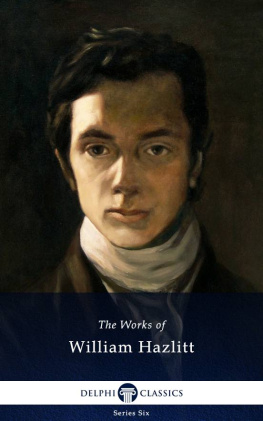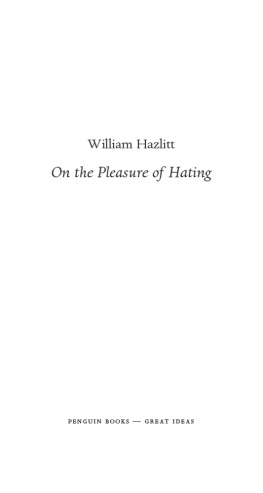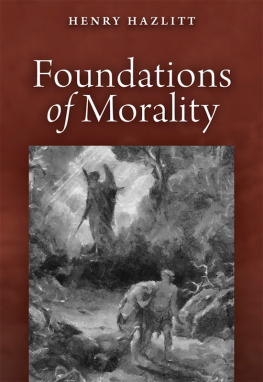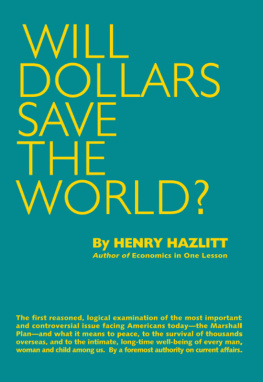Wu Duncan - William Hazlitt: The First Modern Man
Here you can read online Wu Duncan - William Hazlitt: The First Modern Man full text of the book (entire story) in english for free. Download pdf and epub, get meaning, cover and reviews about this ebook. City: Oxford, year: 2010, publisher: Oxford University Press, genre: Detective and thriller. Description of the work, (preface) as well as reviews are available. Best literature library LitArk.com created for fans of good reading and offers a wide selection of genres:
Romance novel
Science fiction
Adventure
Detective
Science
History
Home and family
Prose
Art
Politics
Computer
Non-fiction
Religion
Business
Children
Humor
Choose a favorite category and find really read worthwhile books. Enjoy immersion in the world of imagination, feel the emotions of the characters or learn something new for yourself, make an fascinating discovery.

- Book:William Hazlitt: The First Modern Man
- Author:
- Publisher:Oxford University Press
- Genre:
- Year:2010
- City:Oxford
- Rating:3 / 5
- Favourites:Add to favourites
- Your mark:
- 60
- 1
- 2
- 3
- 4
- 5
William Hazlitt: The First Modern Man: summary, description and annotation
We offer to read an annotation, description, summary or preface (depends on what the author of the book "William Hazlitt: The First Modern Man" wrote himself). If you haven't found the necessary information about the book — write in the comments, we will try to find it.
William Hazlitt: The First Modern Man — read online for free the complete book (whole text) full work
Below is the text of the book, divided by pages. System saving the place of the last page read, allows you to conveniently read the book "William Hazlitt: The First Modern Man" online for free, without having to search again every time where you left off. Put a bookmark, and you can go to the page where you finished reading at any time.
Font size:
Interval:
Bookmark:
The First Modern Man
Romanticism is where the modern age begins, and Hazlitt was its most articulate spokesman. By interpreting it for his contemporaries, he speaks to us of ourselvesof the culture and world we inhabit today. Perhaps the most important development of his time, the print media, now dominates our lives: Hazlitts livelihood was dependent on it. As this new biography argues, he took political sketch-writing to a new level, invented sports commentary as we know it, became the greatest theatre and art critic of his day, and created the essay-form as practised by Clive James, Gore Vidal, and Michael Foot.
Duncan Wus profile of one of the greatest journalists in the language draws on years of archival research in libraries across Britain and North America, to reveal for the first time such matters as why Godwin broke with Hazlitt; how Hazlitt came to know Sir John Soane and J.M.W. Turner; the true nature of Hazlitts dealings with Thomas Medwin, and what the likes of Joseph Farington and Sir Thomas Lawrence thought of him. In addition, it sheds new light on Hazlitts acquaintance with Francis Jeffrey, Robert Stodart, John MCreery, Henry Crabb Robinson, Joseph Parkes, John Cam Hobhouse, and Stendhal. It benefits also from Wus New Writings of William Hazlitt, many of which make their appearance here, illuminating hitherto obscure passages of Hazlitts life.
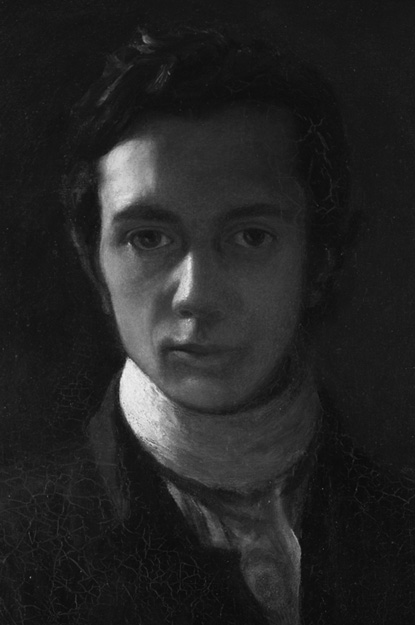
William Hazlitt self portrait
(Maidstone Museum and Art Gallery/The Bridgeman Art Library)
The First Modern Man
Yet he alone is truly great who is so without the
aid of circumstances and in spite of fortune,
who is as little lifted up by the tide of opinion,
as he is depressed by neglect or obscurity, and
who borrows dignity only from himself.
Hazlitt, Characteristics xc
DUNCAN WU


Great Clarendon Street, Oxford OX2 6DP
Oxford University Press is a department of the University of Oxford.
It furthers the Universitys objective of excellence in research, scholarship,
and education by publishing worldwide in
Oxford New York
Auckland Cape Town Dar es Salaam Hong Kong Karachi
Kuala Lumpur Madrid Melbourne Mexico City Nairobi
New Delhi Shanghai Taipei Toronto
With offices in
Argentina Austria Brazil Chile Czech Republic France Greece
Guatemala Hungary Italy Japan Poland Portugal Singapore
South Korea Switzerland Thailand Turkey Ukraine Vietnam
Oxford is a registered trade mark of Oxford University Press
in the UK and in certain other countries
Published in the United States
by Oxford University Press Inc., New York
Duncan Wu 2008
The moral rights of the author have been asserted
Database right Oxford University Press (maker)
First published 2008
First published in paperback 2010
All rights reserved. No part of this publication may be reproduced,
stored in a retrieval system, or transmitted, in any form or by any means,
without the prior permission in writing of Oxford University Press,
or as expressly permitted by law, or under terms agreed with the appropriate
reprographics rights organization. Enquiries concerning reproduction
outside the scope of the above should be sent to the Rights Department,
Oxford University Press, at the address above
You must not circulate this book in any other binding or cover
and you must impose the same condition on any acquirer
British Library Cataloguing in Publication Data
Data available
Library of Congress Cataloging in Publication Data
Wu, Duncan.
William Hazlitt: the first modern man / Duncan Wu.
p. cm.
Includes bibliographical references and index.
ISBN 9780199549580 (acid-free paper)
1. Hazlitt, William, 17781830. 2. Authors, English19th centuryBiography.
3. CriticsGreat BritainBiography. 4. RomanticismGreat Britain I. Title.
PR4773.W8 2008 824.7dc22
[B] 2008031678
Typeset by SPI Publisher Services, Pondicherry, India
Printed in Great Britain
on acid-free paper by
Clays Ltd.
ISBN 9780199549580 (Hbk.)
ISBN 9780199588848 (Pbk.)
2 4 6 8 10 9 7 5 3 1
To my parents
WORK on this biography grew naturally out of my editorial work on Hazlitt, and I pay tribute here to the scholars without whose achievements Hazlittians would be the poorer: William Hazlitt Jr, W. C. Hazlitt, A. R. Waller, Arnold Glover, Jules Douady, P. P. Howe, Geoffrey Keynes, Ernest J. Moyne, Herschel Moreland Sikes, Stanley Jones, Charles E. Robinson, and Eleanor Gates. Barbara Rosenbaums account of Hazlitt in her Index to English Literary Manuscripts has been a constant companion throughout my work. I have learnt much from previous biographers: Jules Douady, P. P. Howe, Catherine Macdonald Maclean, Herschel Baker, Ralph Wardle, Stanley Jones, A. C. Grayling, and Jon Cook. In particular, I single out Jules Douady, often neglected in accounts of Hazlitt scholarship. His Liste Chronologique, though dated, remains an invaluable guide to Hazlitts career, as does his excellent Vie de William Hazlitt, lEssayisteas readable now as when it first appeared in 1907.
During the years I have worked on this book, I have incurred debts and obligations which are a pleasure to acknowledge here. Firstly I thank the many librarians, archivists, and experts who welcomed me during research trips, and smoothed my path in ways too numerous to mention: Virginia Murray at the John Murray Archive in London; Nick Savage, Liz King, and Mark Pomeroy at the Library of the Royal Academy of Arts; Janet Birkett, Assistant Curator of the Theatre Museum; Rob Cox, Roy Goodman, and Valerie-Ann Lutz at the American Philosophical Society; Frances ODonnell, Curator of Archives and Manuscripts at the Andover-Harvard Theological Library; the staff of the Pusey Library, Harvard; Ted Hutchinson, Kim Nusco, Brenda Lawson, Anne E. Bentley, Peter Drummey, Rakashi Khetarpal, and the staff of the Massachusetts Historical Society; Lee Arnold, Director of the Library of the Historical Society of Pennsylvania; Jim Green of the Library Company of Philadelphia; Hal Worthley of the Congregational Library of Boston; Stephen Z. Nonack of the Boston Athenaeum; Bridget Clancey, Beth Bensman, and the staff of the Presbyterian Historical Society, Philadelphia; Glenys A. Waldman, Librarian at the Masonic Library and Museum of Pennsylvania; Earl K. Holt III, Betsy Draper, and Lucy Sewall, Kings Chapel Archive, Unitarian Universalist Association, Boston; Michelle LeBlanc, Old South Meeting House, Boston; Charles Carter of the Pforzheimer Library, New York Public Library; Isaac Gewirtz and Stephen Crook of the Berg Library, New York Public Library; Jennifer B. Lee and Tara C. Craig at the Columbia University Rare Book and Manuscript Library; Alex Rankin at the Howard Gotlieb Archival Research Center, Boston University; Roberta E. Zonghi and her colleagues at the Boston Public Library; Sidney F. Huttner at the University of Iowa Library; Polly Armstrong and the staff of Stanford University Library; Chatham Ewing, Curator of Modern Manuscripts, Washington University Library; Stephanie Philbrick of the Maine Historical Society; Flossie Dere, Corresponding Secretary of the Maine Genealogical Society; Bruce Kirkham of the Kennebec Historical Society; Amey Hutchins, University Archives, University of Pennsylvania; Mary B. Dunhouse of the Boston Public Library; Sumner A. Webber, City Historian, Hallowell; Earl K. Holt III, Minister of Kings Chapel, Boston; James Gerencser, Archivist and Librarian, Dickinson College; Leslie A. Morris and the staff of the Houghton Library, Harvard University; Kathryn James and the staff of the Beineke Library, Yale University; Martha Smalley, Yale Divinity School Library; Heidi Hass and the staff of the Morgan Library, New York; Barbara Austen, Manuscript Archivist at Connecticut Historical Society Museum, Hartford, Connecticut; the staff of the National Archives and the Library of Congress, Washington, DC; Nicole Murray and the staff of the Folger Shakespeare Library; Eric L. Pumroy, Director of Library Collections, Bryn Mawr College; Ellen Healy, Gomez Mill House, New York; John Hurley, Director of Information and Public Witness, Unitarian Universalist Association; Susan Palmer, Archivist at Sir John Soanes House and Museum; Nigel Roche, Curator of St Bride Printing Library; Vanessa Bell and Eamon Dyas at the News International Archive, Wapping; Elizabeth James, Sally Brown, and the staff of the British Library, London; Lucinda Jones and the staff of the Wiltshire Record Office; Tom Mayberry and the staff of the Somersetshire Record Office; the staff of the Central Reference Library, Birmingham; Jo Hutchings, Archivist at Lincolns Inn Library; Gina Douglas, Librarian of the Linnean Society; Deborah McVea and Catherine Fuller at the Bentham Project; Mike Bott at Reading University Library; Aidan Flood at the Camden Public Library; the staff of the Westminster Record Office; the staff of the Local Studies and Archives Centre, Holborn Library; the staff of the National Archives, Kew; David Mullin, Director of the Edward Jenner Museum, Berkeley; Nicholas Robinson of the Department of Manuscripts and Printed Books, Fitzwilliam Museum, Cambridge; Janet Graham and staff of the Liverpool Central Library; Mrs. S. M. Laithwaite, Archivist at the Devon Record Office; Rowan Watson, Head of Documentary Materials, National Art Library, V&A; Dan Mitchell, Special Collections, University College Library Library, London; John R. Hodgson, Keeper of Manuscripts and Archives, John Rylands University Library of Manchester; Malcolm C. Davis, Manuscript Archivist at Leeds University Library; Irene Ferguson, Assistant to the University Archivist, University of Edinburgh; the staff of the National Library of Scotland; Sue Killoran, Librarian of Harris Manchester College, Oxford; Christina Mackwell, Assistant Librarian at Lambeth Palace Library; Tina Gee and Roberta Lewis of Keats House, Hampstead; the staff of Reading Central Library; the staff of Manchester Central Library; Jeff Cowton and the staff of the Wordsworth Library, Grasmere; Katrina Jowett, Senior Assistant Librarian, Library and Museum of Freemasonry, Freemasons Hall, London; the staff of the Department of Special Collections, Glasgow University Library; the staff of the London School of Economics Library; the staff of Senate House Library, University of London; the staff of the Guildhall Library and the Guildhall Record Office, City of London; Alan Crookham, Archivist at the National Gallery, London; Catherine Payling, Josephine Greywoode, and the staff of the KeatsShelley Memorial House, Rome; and Gerard Hayes, State Library of Victoria, Australia. There are a number of librarians to whom I owe particular thanks. Firstly, I thank Sally Collins and Ludmila Gromova, librarians of St Catherines College, Oxford, for making readily available to me the runs of the
Font size:
Interval:
Bookmark:
Similar books «William Hazlitt: The First Modern Man»
Look at similar books to William Hazlitt: The First Modern Man. We have selected literature similar in name and meaning in the hope of providing readers with more options to find new, interesting, not yet read works.
Discussion, reviews of the book William Hazlitt: The First Modern Man and just readers' own opinions. Leave your comments, write what you think about the work, its meaning or the main characters. Specify what exactly you liked and what you didn't like, and why you think so.

